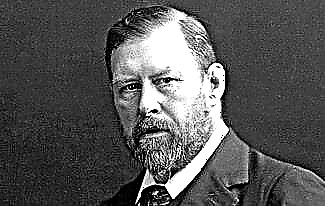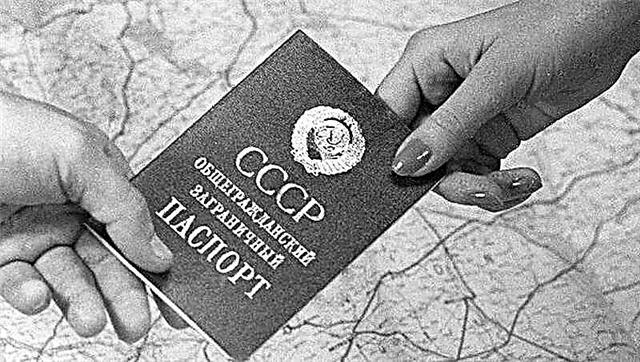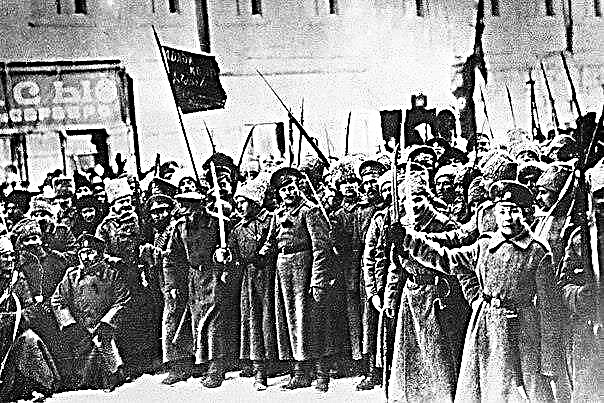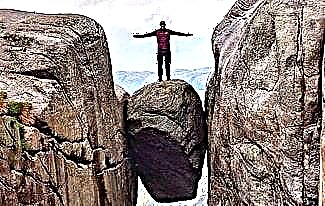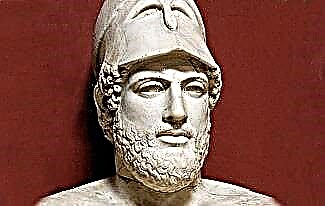In the 4th century BC. the first world power in history appeared - the state of Alexander the Great (356 - 323 AD Alexander's talent as a commander was so great that he was already recognized by his contemporaries. He defeated enemies in unknown conditions, yielding to them in numbers, in the mountains and on the plains. , a balanced policy allowed his rivals to save face when surrendering.Only two or three times Alexander changed his restraint, and he destroyed the conquered cities.

The king of Macedonia, in the end, found himself hostage to his own military leadership. Both he himself and his state could only live in conditions of war or preparation for it. The stagnation immediately survived fermentation and the search for internal enemies. Therefore, Alexander and before his death was preparing a new campaign. The Arabs should have been his target, but they were lucky. Judging by the facts below, Alexander's talents left them no chance of success in the war with the Macedonians.
1. Already at the age of 10, Alexander surprised foreign ambassadors visiting his father, Philip II, by reciting long passages from Greek dramas.
2. When Menechm, one of Alexander's teachers, got confused himself in explaining the section of numerical metaphysics, his little student noticed this and asked to explain everything briefly. Menechm turned around, saying that in most cases kings have a shorter path than mortals, but in geometry there is one path for all.
3. As soon as Alexander grows up, a rather acute rivalry ensued between father and son. Alexander at first reproached his father for conquering the whole world, and nothing would remain for Alexander. Then, after the son was named the protagonist of the Battle of Chaeroneus, Philip lost interest in his son. Moreover, his father decided to divorce Olympiada, Alexander's mother, and marry a young girl ...

Macedonia before Alexander
4. In his first independent campaign, Alexander cleverly defeated the opponents who were waiting for him on the descent from the pass. By his order, the soldiers, walking in front of the heavy carts, threw themselves to the ground, covering themselves with shields from above. On this peculiar road, the carts were launched down the road, scattering the formation of enemies.
5. When Alexander started the war with the Persians, there were only 70 talents in his treasury. This amount would be enough to pay the soldiers' salaries for 10 days. The war was simply necessary for the king.
6. All the conquests, first of Philip, and then of Alexander, began as a “war of vengeance” - the Persians attacked and captured the Greek city-states in Asia Minor, the noble Macedonians go to liberate them. However, after the liberation, the maximum benefit for the Greek cities was that they did not increase the taxes that they paid to Darius.
7. Alexander's campaign could have ended as soon as it began. In the spring of 333 BC. he fell ill with pneumonia. Even with the high level of development of medicine among the Greeks, it was extremely difficult to cope with this disease without antibiotics. But Alexander survived and continued the war.
8. During the Asian campaign at the transition to Pamphylia, it was possible to move either along a good road in the depths of the coast, or along a narrow path along the coastal cliff. The path, in addition, was constantly overwhelmed by waves. Alexander sent the main part of the army along a good road, and he himself, with a small detachment, walked along the path. He and his companions were pretty battered, part of the way they generally did waist-deep in water. But the successful completion of a small campaign later gave reason to say that the sea retreated before Alexander.
9. The key battle in the fight against the Persians - the Battle of Issus - was won by the Macedonians thanks to the cowardice of the Persian king. Darius simply fled the army when he thought that the Persians were losing. In fact, the battle was double-edged. With proper control, the flanks of the Persian army - by the time Darius fled they were holding out successfully - could cover the bulk of Alexander's troops. But the merits of Alexander and his soldiers should not be belittled. When the Macedonian king, who personally participated in the battle, realized that only a blow to the center of the enemy system squeezed in the mountains could bring success, he put all his strength into this blow and won a historic victory.
10. The production at Issus was simply colossal. In battle alone, 3,000 talents worth of good were captured. Plus, in nearby Damascus, left without protection, the Macedonians captured even more. The whole family of Darius fell into their hands. Such was the price of a few moments of the Egyptian king's cowardice and the decisiveness of the Macedonian king.
11. The second time Alexander defeated Darius at the Battle of Gaugamela. This time the Macedonian was already counting on Darius's cowardice and immediately hit the center. The risk was incredible - during the battle, the Persians who almost closed their flanks reached the enemy carts. Here, Alexander was helped by the training of his troops - the Macedonians did not flinch, brought reserves and threw back the enemy. And at this time, Darius was already fleeing, as soon as a detachment of his bodyguards, numbering several thousand people, entered the battle. Another clear victory for Alexander with a lot of prisoners and trophies.

Battle of Gaugamela. Alexander in the center
12. Alexander won an outstanding victory in India at the Battle of Gillasp. The opposing armies were located on two banks of the river. The Macdonians several times depicted false attempts to cross, and during the last of them they covered part of the army out of the reach of enemies. Forcing the river at night, this unit pinned down the main forces of the Indians, and then with the help of the main forces that arrived in time, destroyed the opponents. The Indians, who had an army of approximately equal numbers, were not helped by either the war elephants or the personal courage of their king Pora.
13. The largest trophies were captured in the capital of the Persian kingdom of Persepolis. Only in cash, as they would say now, 200,000 talents were taken out of it, the volume of the rest is not difficult to imagine. The city was not officially destroyed, but it was the king who threw the first torch to set fire to the majestic palace of Xerxes.
14. Alexander was not greedy. He generously donated trophies to those close to him and ordinary soldiers. They describe a case when he saw a loaded soldier who could hardly move his legs. Alexander asked what the soldier was carrying, and in response he heard that this was part of the royal booty. The king immediately gave the soldier everything that he carried. Given the strength and unpretentiousness of the then Macedonians, the soldiers received 30 kilograms of silver (if it was not gold).
15. Despite the military nobility and knighthood of Alexander, in at least two cities - Thebes and Tire - he destroyed or sold into slavery all the defenders and inhabitants, and even completely burned Thebes. In both cases, it was about tens of thousands of people.
16. Alexander the Great did more than just found Alexandria, now Egyptian. Like Tsar Peter two millennia later, he himself marked the streets, indicated the places for the market, dam and sanctuaries. It was a rare case for Alexander of using his own energy for peaceful purposes. There were several dozen of Alexandria in total.
17. The more victories were won by Alexander's soldiers, the more intolerant he became to the opinions of others. And the king of Asia now began to give reasons for hostile statements in abundance. That was just the requirement to kiss the king's toes at the meeting. The dissatisfied were pacified by executions, and the closest of them, Klyt, who had saved his life more than once, was killed by Alexander himself with a spear during a drunken quarrel.
18. In the battles, the king received dozens of wounds, several of which were very serious, but he recovered every time. Perhaps it was precisely because the body was weakened by these wounds that Alexander was unable to withstand the fatal disease.
19. Among the Macedonians, the addiction to alcohol was considered a manifestation of masculinity and military spirit. At first Alexander was not very inclined to drink, but gradually endless feasts and drinking parties became a habit with him.
20. Alexander died in the summer of 323 BC. from an unknown disease, it seems, infectious. It developed gradually. The tsar, even feeling bad, was busy with business, preparing a new campaign. Then his legs were taken away, and on June 13 he died. The empire of the great king, built on bayonets and strong control from the center, did not outlive its creator much.

Power of Alexander


